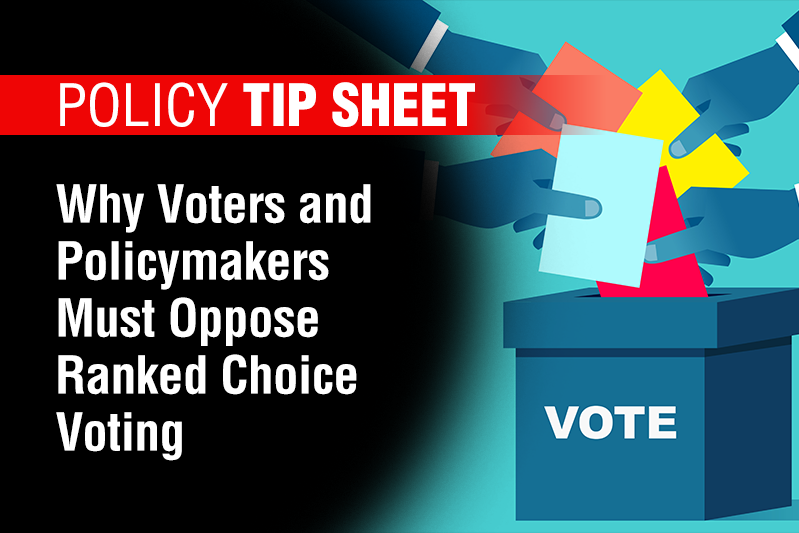Introduction
The adoption or rejection of ranked choice voting (RCV) has become a fiercely contested policy debate in recent years. Advocates for RCV—the most prominent of which is FairVote—tout the adoption of this system as a way to break the two-party stranglehold, reduce political polarization, provide voters more choices, and improve overall satisfaction with the electoral process.
Though FairVote and other proponents of RCV consistently claim to work on behalf of voters and the advancement of “democracy,” they are heavily funded by left-leaning globalist oligarchs and their networks. For instance, FairVote’s donors include the George Soros-controlled Open Society Foundations, the Jennifer and Jonathan Allan Soros Foundation, and the Soros Fund Charitable Foundation. Additional donors consist of the Rockefeller Brothers Fund, the Carnegie Corporation of New York, the Omidyar Network Fund, the Democracy Fund, and the Tides Foundation, among many others with strong ties to hard-left agendas. These organizations, and the individuals who control them, have regularly deployed their vast wealth and influence to advance radical, progressive causes that degrade America’s constitutional foundations, extinguish liberty, and consolidate the power of societal elites. Their support for ranked choice voting fits neatly within that pattern.
FairVote, its donors, and other ideologically aligned organizations have also been the driving forces behind the National Popular Vote interstate compact, an insidious initiative that strives to eliminate the Electoral College and determine presidential elections through direct democracy. Moreover, FairVote is the leading advocate for the Fair Representation Act (FRA), which would transform elections to the U.S. House of Representatives into a proportional representation-based system. Crucially, the creation of multi-member congressional districts via the FRA would rely upon the use of ranked choice voting.
Though these initiatives are not the focus of this Tip Sheet, such context is vital to understand, as it clearly conveys these actors’ overarching goal of subverting the entire U.S. electoral system. The widespread adoption of ranked choice voting represents a major step in that dangerous direction. RCV does not solve any problems; it exacerbates existing problems while also creating entirely new ones. Ultimately, ranked choice voting poses an immense threat to free, fair, and secure elections—and therefore to the entire republic.
(To continue reading, click here.)






